Understanding is not a concept you use when everything else fails or proves you wrong.
I Called Out My DIL’s Favoritism, and Now She’s Banned Me From Seeing My Grandkids
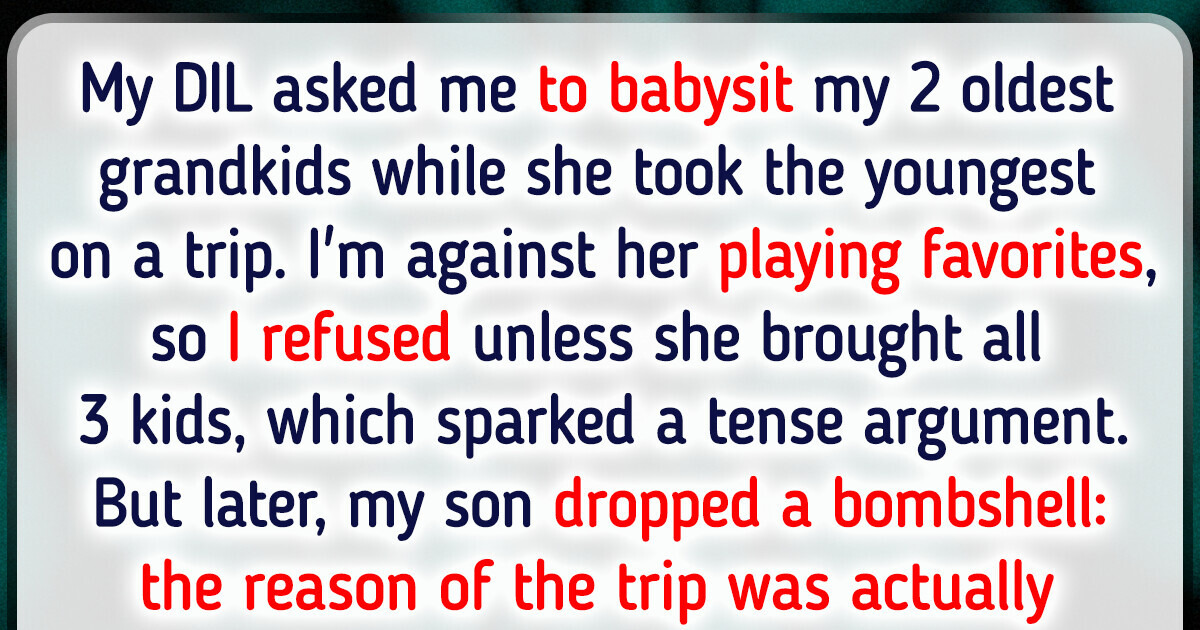
Conflicts between mothers and daughters-in-law are common, often arising from differing perspectives, parenting styles, or even simple misunderstandings. What truly matters is how we navigate these conflicts. By seeking common ground and acknowledging our own mistakes, we can transform misunderstandings into opportunities for growth and stronger family bonds. One of our readers recently faced an unfortunate misunderstanding with her daughter-in-law, which led to unintended consequences, prompting her to seek our support and advice.
She sent a letter, saying:
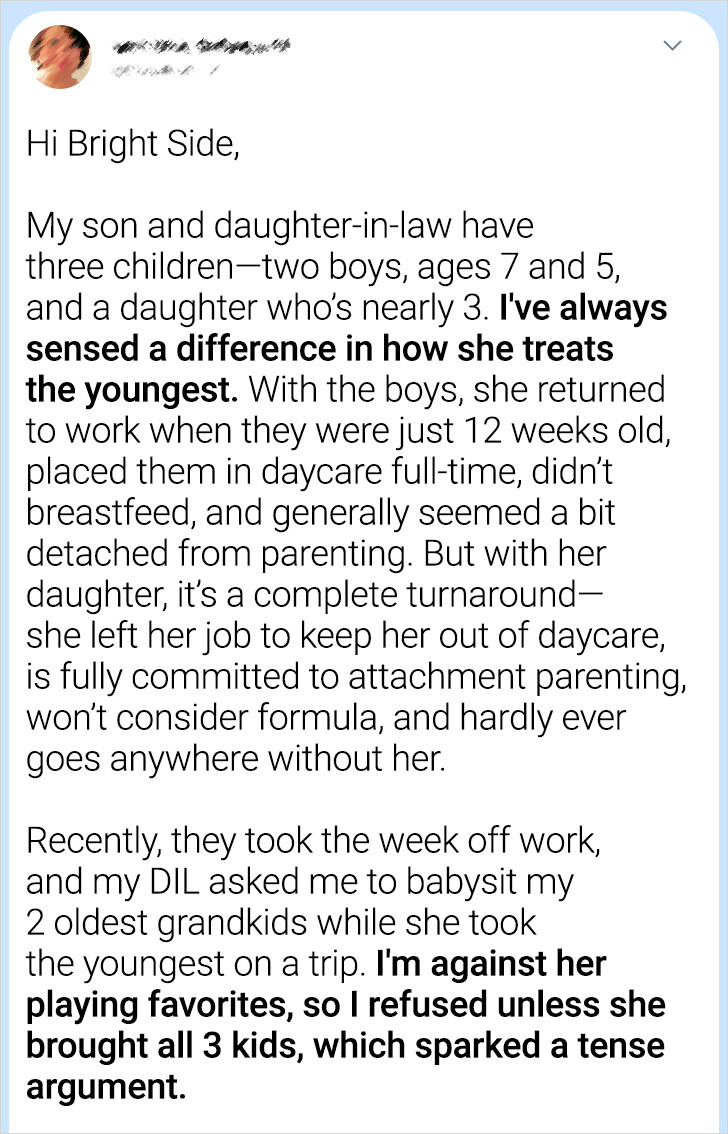
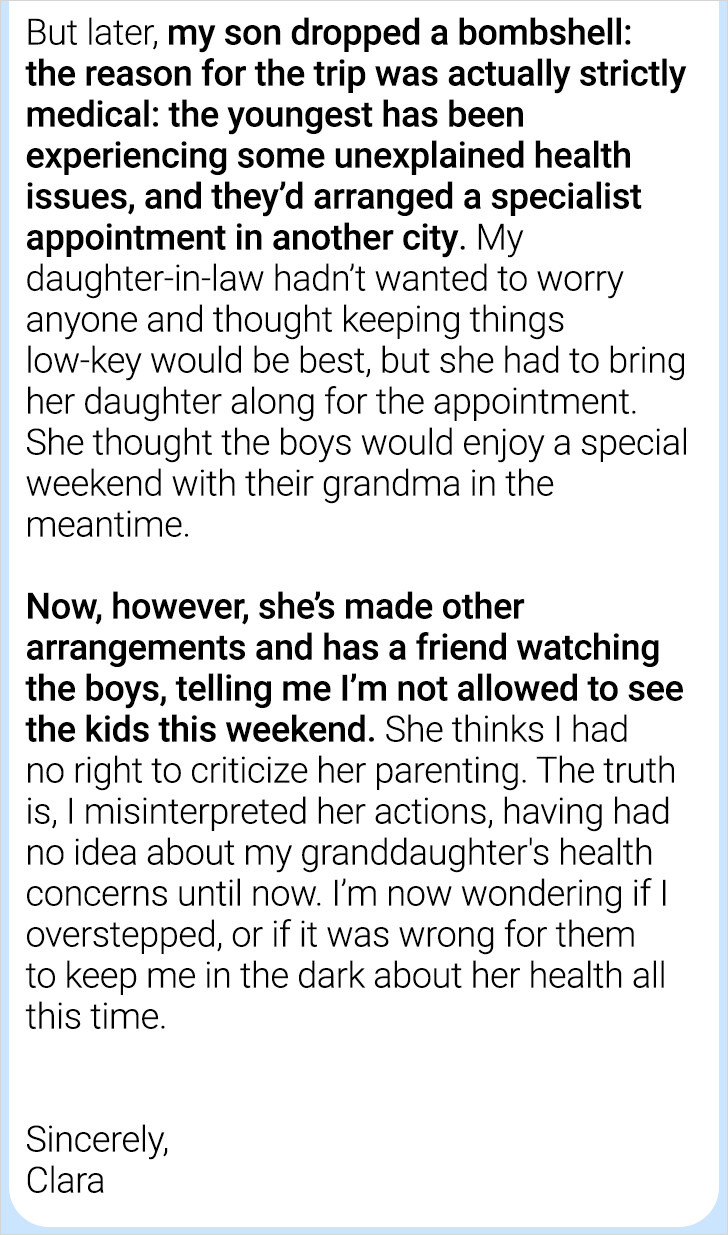
Thank you, Clara, for trusting us with this sensitive situation. We’ve done our best to provide five pieces of advice to help you resolve this misunderstanding with your daughter-in-law and son and restore things to normal.
Empathize with Their Situation
Recognize that your daughter-in-law may be facing significant stress due to her daughter’s health issues. Try to empathize with her choices, understanding that her commitment to attachment parenting reflects her desire to provide the best care for her child.
Acknowledging her efforts may help alleviate some of the tension between you. Offer support by asking how you can help during this challenging time, rather than focusing solely on your feelings of favoritism. This approach can foster a sense of teamwork and understanding.
Open Communication
Establishing open lines of communication is crucial for understanding each other’s perspectives. Consider reaching out to your daughter-in-law to express your feelings and clarify any misunderstandings.
Let her know that your intention was never to criticize, but to support her as a grandmother. Share your willingness to listen and be involved in their parenting decisions. This may help mend any rifts and encourage a more collaborative family dynamic.
Avoid Assumptions
In situations like this, it’s important to avoid making assumptions about motives or behaviors without all the facts. Acknowledge that your initial perception of favoritism was based on incomplete information.
Moving forward, approach similar situations with a mindset of curiosity rather than judgment. Ask questions to gain insight into their decisions, which will help you better understand their family dynamics. This change in perspective can lead to more positive interactions in the future.
Prioritize Family Bonds
Consider ways to strengthen your bond with all three grandchildren, ensuring they feel equally loved and valued. Plan activities that involve the whole family, which can help bridge any gaps between you and your daughter-in-law.
You might suggest a family outing or a special day with the kids that includes both older boys and their sister, fostering a sense of unity. Reinforcing these connections will remind everyone of the importance of family and help reduce feelings of favoritism. This proactive approach can lead to more meaningful relationships with your grandchildren and their parents.
Support Her Parenting Choices
While you may have different parenting philosophies, it’s important to respect your daughter-in-law’s approach to parenting, especially regarding her daughter’s health. Offer her encouragement and understanding as she navigates this challenging journey with her child.
nstead of expressing criticism, focus on the positives of her attachment parenting style and the love she shows her children. By showing support, you can help create a more harmonious relationship and demonstrate that you value her role as a mother.
Conflicts between mothers-in-law and daughters-in-law can become more pronounced when they live under the same roof. In a similar situation, one of our readers—a daughter-in-law—faced a challenging scenario in which her mother-in-law employed deceitful tactics to try to evict her from their home. Read her poignant letter here.
Comments
Related Reads
I Didn’t Tell My Husband’s Family I Spoke Their Language
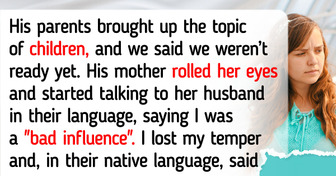
I Lost It When MIL Called Our House “My Son’s” and Made an Unbelievable Request
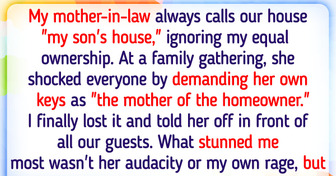
16 Times Kids Surprised Us With Their Responses

12 Adults Recollect Unsettling Events From Their Childhood

15 People Who Stay Kind Even When Their World Is Falling Apart

I Refused to Pay for Our Valentine’s Dinner—Then I Learned the Heartbreaking Truth

I Refused to Let Anyone Steal What My Dad Left Me, and My Mom Made It Worse

My Parents Refused to Support Me Through Med School—Then I Discovered Their Sad Secret

My Boyfriend’s Mom Kept Mocking My Career—My Response Silenced the Whole Table

I Refuse to Pay for Everyone Else Just Because I Chose a Vegan Restaurant

11 People Who Chose Humanity Over Hatred in the Darkest Moments

My Dad Refused to Come to My Wedding, but I Still Asked for the Gift




